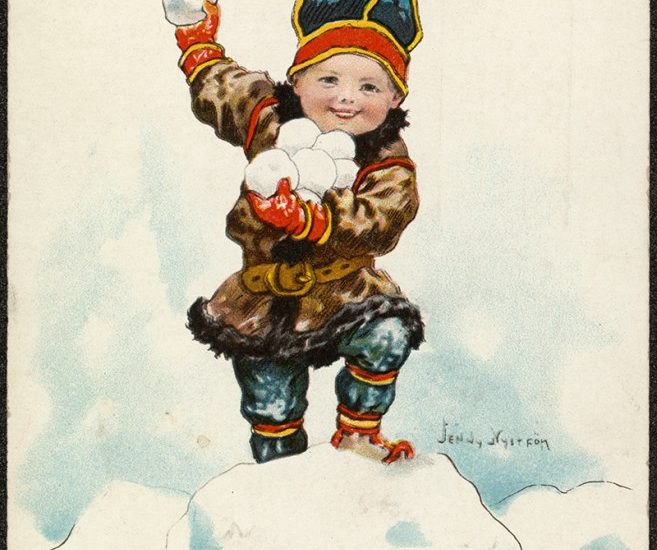SAMI CHRISTMAS?

 You are Reading..
You are Reading..
SAMI CHRISTMAS?
When people ask us about the Sami Christmas, again we say that there is not one easy short answer to this question.
Again, because of Christianization and colonization.
But to make a super-easy indication of what we are confronted with in this question, these are the three answers we can give:
1. In Sami pre-christian times we did not celebrate Christmas, since it is a christian tradition. The Sami people were not christians before the colonization.
2.At some point the christian and pre-christian customs where both practised. We know that a lot of Sami christians went to church for a ceremony, and returned home and did a ceremony to honor the Sami gods.
3. A lot of Samis became good christians and they of course always celebrate Christmas like they learned from the colonizers. Like anyone else in western society.
So if you ask about pre-christian times, Sami people did not celebrate Christmas.
Not unsurprisingly, originally Christmas was not a Sami tradition at all.
But there are some elements of the Christmas celebration that are from pre-christian times.
Such as for example the goblins and elves.
There are also investigations found on the big internet that point towards that the time of the celebration of the birth of Jesus Christ was put close to the winter solstice to distract people, since the solstice already was one of the most important events of the year in the pre-christian pagan culture.
The winter solstice is only a few days apart from the christian Christmas eve.
Before christianity the Sami people did have their beliefs, gods, and holy places they visited. And the sun is one of our most beloved and important gods – our father. The Sami people are sons and daughters of mother earth and father sun.
We assume our forefathers did have some kind of ceremonies and rituals on Winter solstice, like what the norsemen and other pagans call Yule.
December is the darkest month of the year, and the 21st is the day of the solstice. Thats when the days start to become lighter and lighter each day. The sun and light is reborn.
DARK SEASON LEGENDS
We have legends connected to winter and December – the darkest month of the year.
We have the story about Stállu, the giant awful creature that eats children, who is travelling with the mouse- convoy during the dark season (but also rest of the year).
It was said that if you don’t keep the outside of your house tidy, he will get stuck there with his mouse- convoy, and he will get angry and come into your house.
You should also leave water for him, in case he is thirsty when passing by. That way you can avoid that he will enter the house.
There are some writings about Samis that say that when the dark season hit, there was fear that the sun would not appear again, and therefore rituals to make sure the sun would return to the skies.
We also have the stories about the northern lights, of course, and also, as in the rest of the northern hemisphere, there is a legend about the female reindeer with great antlers that flies over the sky from the darkness of the new year and brings light and life into the new year.
ELINS YULE CELEBRATION
As the year of 2020 had been so different already, I decided I would want to try to celebrate the month of december as the Sami people would pre-christian times. Of course it’s close to impossible to know what they did back then, but this is what I ended up doing:
On winter-solstice I visited a Sieidi. I made a fire, yoiked and gave them my offerings, and thanked them for the past year, and also asked them to support me the coming year. This particular night actually felt like the natural day to start a new cycle with the sun. It really felt like a new start for me.
A few days after I celebrated Christmas eve like anyone else in Norway (and the rest of the world).
I put on a nice dress and had Christmas dinner with my family and had Christmas presents under the tree.
I did some research and found that in the early 1900s it was usual to have fish or meat on Christmas eve, like it is now, but some Samis had the belief that they should fast on Christmas eve.
They said that their stomach would rip if they ate meat or fish, so they only ate porridge with cloudberries on Christmas Eve.
So this year I have celebrated in many ways. I celebrated the natural new year- winter solstice the 21st, the christian christmas 24th, and the calendar new year 31st dec.
And I felt really great doing this. The different rituals all had their own special purpose for me. – Elin
